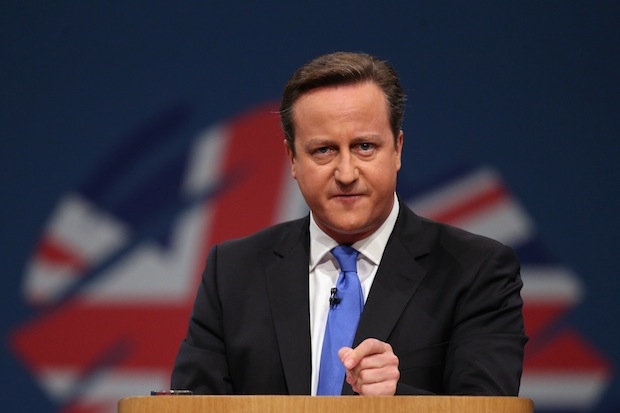The economy has recovered, and is steadily growing. That much is now clear. It has long been assumed that this will help the Conservative Party’s electoral fortunes. The logic goes that, having steered the country through difficult economic times, a grateful public will come out in their droves to thank them for it. But politics is never that simple, and the public are rarely so willing to give credit to politicians. While it may seem perverse to suggest that economic growth is harming the Tories’ electoral chances, continuing good news about the economy is making it less of an electoral issue. Voters are beginning to ask: ‘what next?’
David Cameron and the Conservatives are experiencing a voteless recovery. The economy is getting better, but their position in the polls is not – or at least not dramatically. Labour holds a lead over the Conservatives, as they have done in every single ComRes poll since February 2012. It is true that things have slightly narrowed since the heady days of the ‘omnishambles’, but not yet enough.
So, if the economy is getting better, why are voters not rewarding the Conservatives? Indeed, just one in three Britons believe that the economy is improving ‘thanks in part to this government’s policies’.
The truth is that politicians – of any creed – get very little credit for success. Voters tend to move on to the next problem. It seems increasingly likely that, despite all predictions that the 2015 General Election will be won and lost on the economy, the debate may have moved on by then.
Indeed, we are already seeing the economy fall away as an important issue to voters: our polling in the 40 most marginal constituencies found ‘protecting the economic recovery’ to be behind the NHS, immigration and keeping down the cost of everyday items as the most important issues that will shape voters’ decision next year.
The Tories have made the economy the ace in their deck; they have pinned their hopes on it as the best way of securing a victory in 2015. Few would have argued with that electoral strategy at the outset of this parliament; but now it seems that was too simplistic a reading of the situation. Perhaps growth has simply come far too late to be useful. Indeed, the recovery is not yet being celebrated because so few people actually feel it in their pockets, meaning that Labour’s adoption of the ‘cost of living crisis’ could yet prove an electoral masterstroke in the end.
Seven in ten British adults say that, despite the economy growing, they don’t feel any better off. The need for economic credibility – something that Eds Miliband and Balls are lacking – is becoming less of an issue. Labour’s landslide in 1997 came despite the fact they lagged behind John Major’s Conservatives as the party most trusted on the economy because the economy was not the most important issue. 2015 could be a similar case, with David Cameron’s Conservatives losing despite being seen as more competent captains of the economic ship than their opponents. How people feel about their own situation will be a bigger factor when people are putting their crosses on the ballot paper.
The Conservatives will be keen to emphasise their success. But if that success is only at a macro level, and voters answer Ronald Reagan’s ‘are you better off now than you were four years ago?’ in the negative, then Labour’s message will be more relevant. Cameron, Osborne et al will have to convince voters not only that the economy is improving because of them, but that this will translate into better personal finances.
It is worth remembering that, while ‘it’s the economy, stupid’ is the oft repeated mantra from Bill Clinton’s 1992 campaign, Clinton HQ had two other phrases: ‘Don’t forget healthcare’ and ‘Change vs more of the same’. The latter is less relevant now, the former is becoming ever more so. But what smart strategists take away is that the winning party will need to present a wider programme for victory.
Tom Mludzinski is Head of Political Polling at ComRes. He tweets @tom_ComRes






Comments